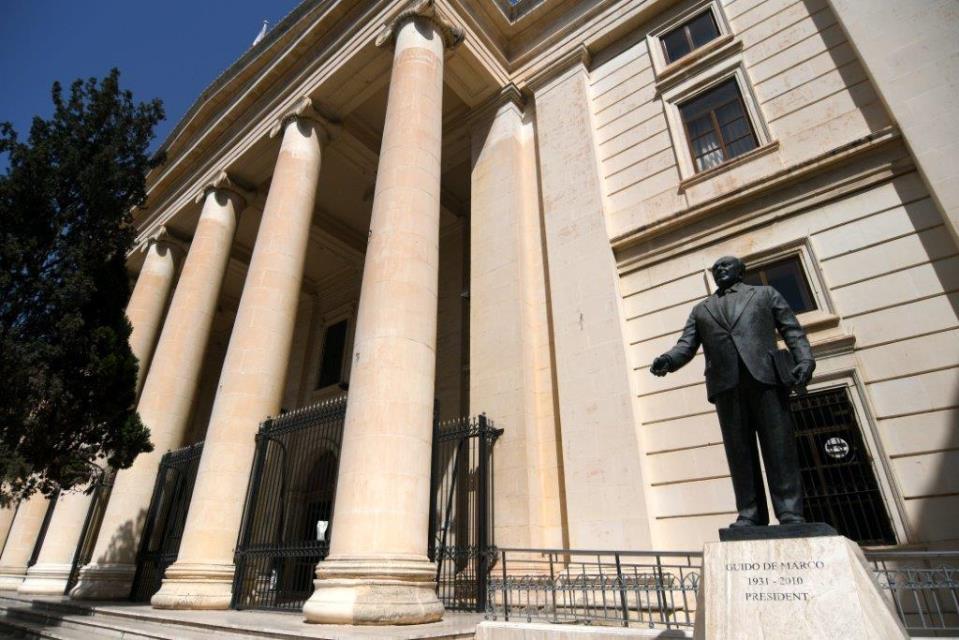President of the Chamber of Advocates George Hyzler plans to praise government and the Opposition in his opening of the forensic year speech today, on their ability to come together and establish the Judicial Appointments Committee, however he will also criticise the new Act, by saying that they did not go far enough.
The beginning of the forensic year allows for speeches by the Chief Justice, Silvio Camilleri as well as the Chamber of Advocates President, reflecting on the past year,and airing their concerns and views on the administration of justice. The event is normally attended by the President of Malta, the Minister for Justice, the Shadow Minister for Justice, as well as past and present members of the Judiciary.
Speaking with The Malta Independent, Dr Hyzler said that the Chamber of Advocates has always suggested that the executive should distance itself as much as possible when it comes to judicial appointments.
The committee was introduced earlier this year, as part of Malta’s Constitutional Reforms, and is composed of the Chief Justice, the Attorney General, the Ombudsman, the Auditor General and the President of the Chamber of Advocates.

The functions of the Commission include: to receive and examine expressions of interest from persons interested in being appointed to the post of Chief Justice, Judge or Magistrate, other than from persons already occupying an office established by this Constitution, to conduct interviews or assessments of candidates for the offices where it considers that these are necessary, to advise the Prime Minister through the minister responsible for justice on its evaluation of candidates for the above-mentioned offices.
When requested by the Prime Minister, they are also to advise on persons who already hold an office established by this Constitution with regard to their eligibility and merit to be appointed to any of the above-mentioned offices. Should government reject a recommendation by the commission and proceed with its own nomination, it would need to publicly explain its reasons.
Earlier this year prior to the introduction of the Constitutional changes, two government nominations for the post of magistrate came under heavy criticism.

Government had said that it had had approved Caroline Farrugia Frendo, who is Speaker Anglu Farrugia’s daughter, and Ingrid Zammit Young to join the benches of the judiciary.

Ingrid Zammit Young had withdrawn her nomination after the Commission for the Administration of Justice found that there could be Constitutional Impediments to her appointment.
Magistrate Caroline Farrugia Frendo was appointed, however her nomination was controversial as at the time of her nomination, she was not eligible to take the post, due to the seven years of legal practice requirement for such appointments. She became eligible on 16 March this year, when she met the seven year legal practice requirement. She was officially appointed after this date.
Dr Hyzler also intends on expressing his disappointment when it comes to the Lawyers Act, as it has not yet been implemented.
“This Bill was introduced in 2012, however has been revised and to our knowledge we are in agreement on it. It has yet to be presented for Second Reading”.

“It is the law that regulates the legal profession in all aspects from ethics to organisation, membership, regulating law firms, , continuous professional develepment, etc” he said.
This year the Chamber of Advocates also stood up for the judiciary, condemning an article penned by Glenn Bedingfield, criticising a judge over a sensitive judgement regarding Parliamentary seats.
In its statement, the chamber said that is always respected freedom of expression and the media, and everyone has the right to contest a judgment. But it is unacceptable that a judgment is turned into a personal matter and it is the judge who is criticised.
“Over the years, several people who had been politically involved had been appointed judges and magistrates but they were always impartial in their judgments in the best interests of justice,” the Chamber had written.